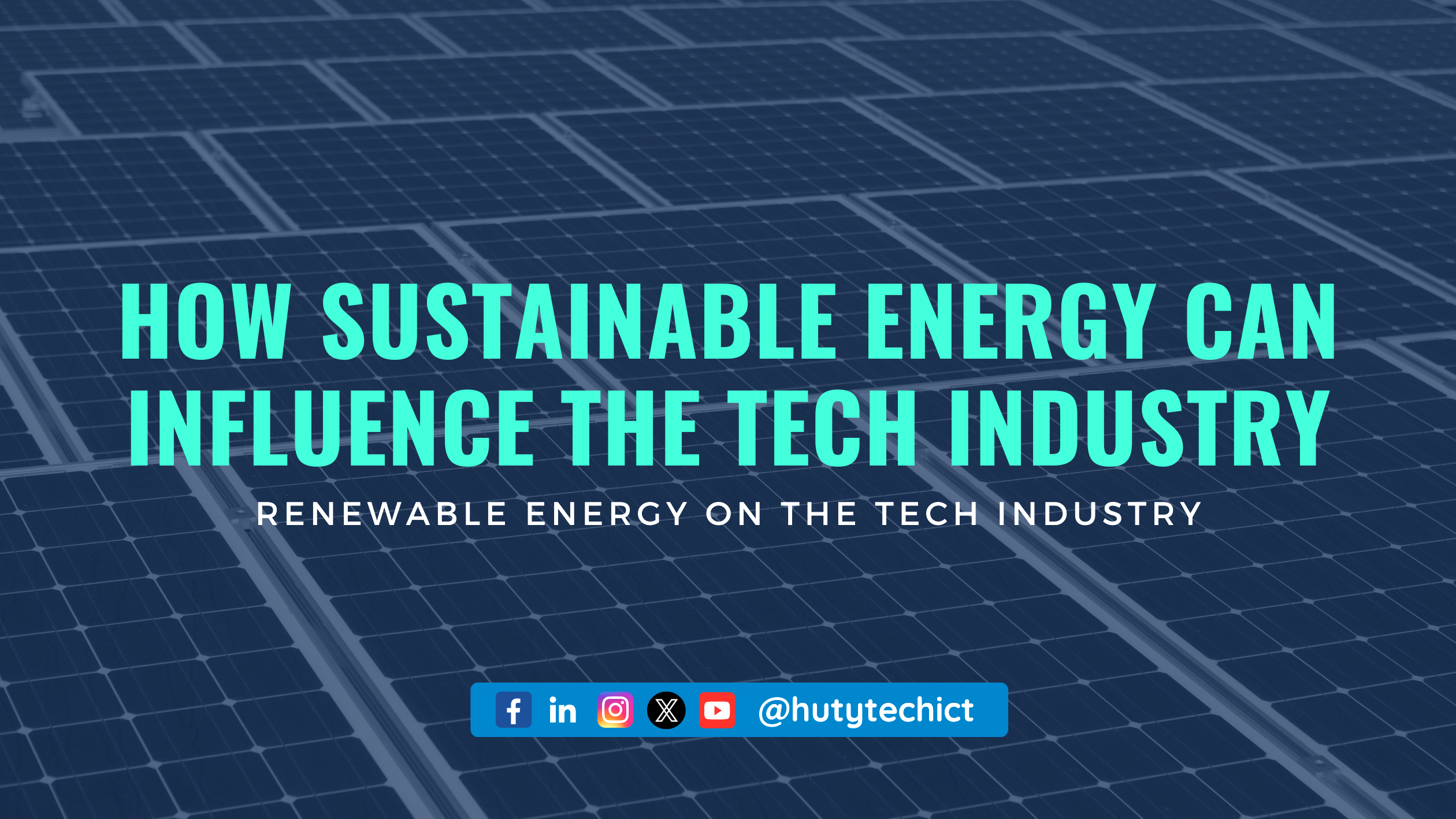A Deep Dive into the Impact of Renewable Energy on the Tech Industry
In an era defined by technological innovation and environmental awareness, the intersection of renewable energy and the tech industry represents a pivotal point in our quest for sustainability. As the demand for energy continues to surge, fueled by the exponential growth of digital technologies, the need for clean, renewable sources of power has never been more urgent. In this comprehensive exploration, we delve into the multifaceted ways in which renewable energy can catalyze positive change within the tech sector, driving innovation, reducing carbon emissions, and paving the way for a more sustainable future.

- The Imperative for Change: The tech industry is renowned for its capacity to disrupt and innovate, yet it also bears a significant environmental burden. Data centers, the backbone of the digital age, are notorious energy hogs, consuming vast amounts of electricity and emitting substantial carbon dioxide. As concerns about climate change escalate, there is mounting pressure on tech companies to adopt more sustainable practices and reduce their carbon footprint. Renewable energy emerges as a compelling solution, offering the promise of clean, abundant power without the environmental costs associated with fossil fuels.
- Unlocking the Potential of Renewables: Renewable energy sources, including solar, wind, hydroelectric, and geothermal power, offer a renewable and sustainable alternative to fossil fuels. With advancements in technology and economies of scale, the cost of renewable energy generation has plummeted, making it increasingly competitive with conventional energy sources. Moreover, the decentralized nature of renewable energy infrastructure presents opportunities for greater energy independence and resilience, particularly in the face of climate-related disruptions.
- A Path to Sustainability: Transitioning to renewable energy is not merely a matter of environmental responsibility; it is also a strategic imperative for the tech industry. By embracing renewable energy solutions, tech companies can significantly reduce their carbon emissions and align their operations with global sustainability goals. Whether through investing in on-site renewable energy generation, purchasing renewable energy credits, or entering into power purchase agreements with renewable energy providers, tech companies have a myriad of options for greening their energy supply chain.
- Driving Technological Innovation: The pursuit of renewable energy catalyzes innovation within the tech sector, spurring advancements in energy storage, grid management, and renewable energy technologies. From next-generation solar panels with higher efficiency to advanced battery storage systems capable of storing excess renewable energy, the quest for clean, sustainable power fuels a cycle of technological innovation and discovery. Moreover, the integration of renewable energy systems with smart grid technologies and Internet of Things (IoT) devices enables more efficient energy management and optimization.
- Economic Benefits and Market Opportunities: Beyond its environmental and technological implications, renewable energy presents significant economic opportunities for the tech industry. As renewable energy technologies mature and scale up, they become increasingly cost-competitive with fossil fuels, offering the potential for long-term cost savings and stability. Moreover, the growing demand for renewable energy solutions creates a burgeoning market for tech companies specializing in clean energy technologies, creating jobs and driving economic growth.
- Corporate Leadership and Social Responsibility: Embracing renewable energy is not only a sound business decision but also a demonstration of corporate leadership and social responsibility. By committing to renewable energy, tech companies can enhance their brand reputation, attract environmentally conscious consumers, and differentiate themselves in a competitive market. Moreover, as influential stakeholders in the global economy, tech companies have the opportunity to leverage their resources and influence policy decisions that accelerate the transition to a renewable energy future.
- Collaboration and Collective Action: Achieving a sustainable energy future requires collaboration and collective action across industries and stakeholders. The tech industry, with its innovative spirit and global reach, has a unique role to play in driving systemic change and catalyzing the transition to renewable energy. By partnering with governments, NGOs, and other businesses, tech companies can leverage their expertise and resources to accelerate the deployment of renewable energy technologies and address the urgent challenges of climate change.
The convergence of renewable energy and the tech industry represents a watershed moment in our collective journey towards a sustainable future. By harnessing the power of innovation, technology, and collaboration, we can unlock the full potential of renewable energy and reshape the way we power our world. As we navigate the challenges and opportunities ahead, let us seize this moment to embrace renewable energy as a catalyst for progress, prosperity, and planetary well-being. Together, we can power a brighter future for generations to come.

